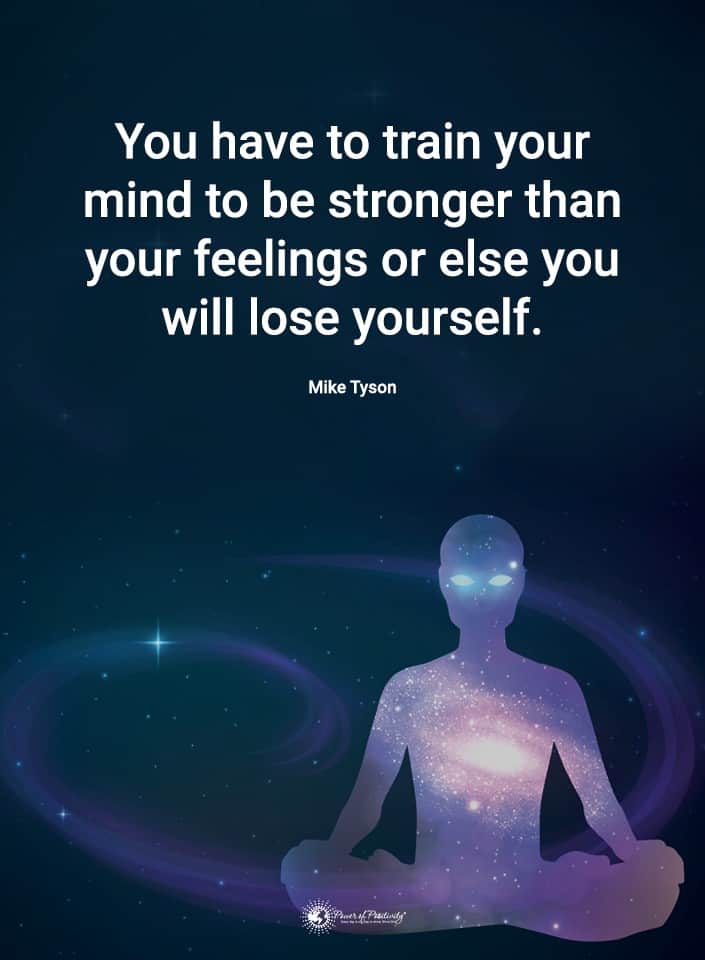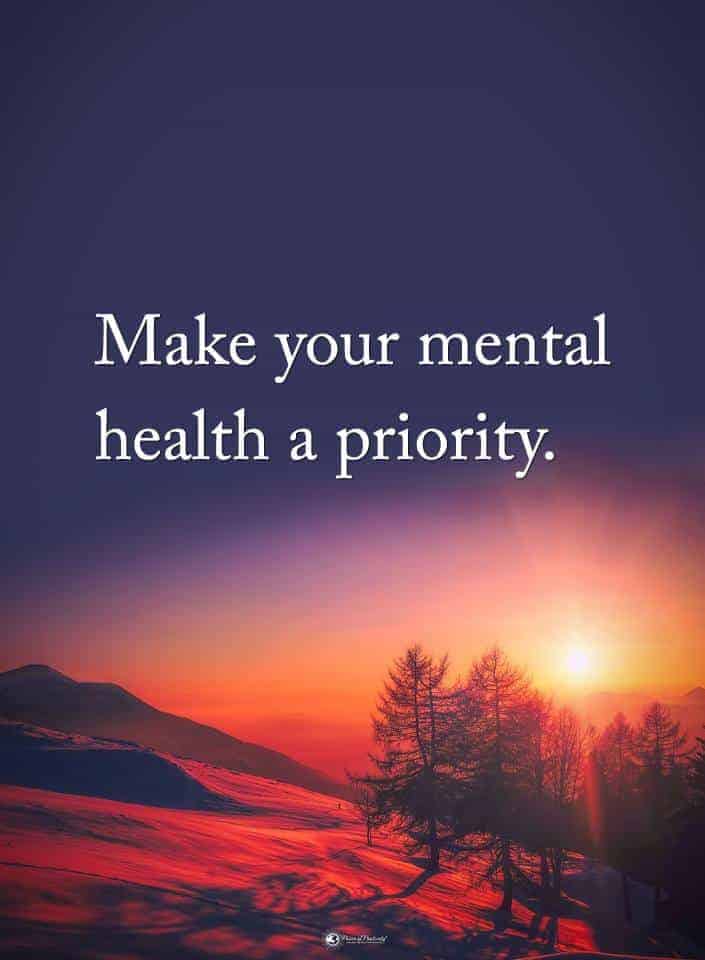Do you ever feel overwhelmed but everything that’s going on around you? Does the stress of daily life impact more than it should? Does it cause you depression and anxiety that you don’t know how to deal with? Mindfulness meditation might help you to reduce those harmful emotions.
For the average person, the idea of practicing mindfulness might not sound convincing. After all, how would the desire to be more positive help when it comes to solving mental health issues? Isn’t the problem that the brain is inclined to be negative? Aren’t these feelings something that you can’t consciously control?
In reality, mindfulness has been successfully used for decades. And it’s not just an old wives’ tale. It is a scientific method backed by loads of studies. But what are seven of the easiest and most efficient mindfulness methods that help reduce anxiety and depression?
What Is Mindfulness?
Mindfulness is a type of meditation that aims to make someone aware of everything they’re feeling at a particular moment. It requires a positive mindset and an objective outlook not to interpret or judge what you’re feeling. It would help if you didn’t think about what you’re feeling. Instead, it would help if you allowed yourself to handle it.
A person spends all of their time planning or problem-solving on a typical day. Even when they’re not busy with work or other activities, chances are their head is filled with random thoughts. Because of how difficult life can be, these thoughts are often negative. This is why most of your days are filled with stress and negativity. Because of the increased stress levels, you become more likely to develop anxiety and depression.

Practicing mindfulness and using these mindfulness methods can help you get your mind off negative things. It can help you disconnect from the struggles of day-to-day life and connect with your feelings, emotions, and needs. It can help you engage with the world around you and reflect on its importance. Being more mindful lowers the psychological markers of stress, thus improving the brain’s ability to manage it.
Mindfulness does this by increasing connectivity in the dorsolateral prefrontal cortex, the area responsible for attention and executive control. You can practice simple mindfulness methods anywhere and anytime. Most of them don’t require the use of anything besides your brain and body. And most of them can be done in five to 10 minutes.
7 Mindfulness Methods That Help Reduce Anxiety and Depression
You can try these mindfulness methods at home, or you can choose to do them when you feel like you need to calm down. When you start incorporating mindfulness methods into your life, your anxiety and depression will reduce significantly.
1. Set An Intention
Often, anxiety and depression stem from not having a guideline for how your day will be. Or maybe there is a conflict between your conscious desires and what you subconsciously do throughout the day. If you want to start your day off on the right foot, you might want to consider setting an intention for the day as soon as you wake up.
An intention is different from a goal because it’s non-binding. It doesn’t create expectations that have to be met no matter what. Instead, it is a general guideline to help you plan your day. Because an intention doesn’t have a required result, there is no additional pressure associated with setting one. It will only help you connect to a chosen course of action.
You need to reflect and align your conscious and unconscious brain to set an intention. Take a couple of minutes each morning and allow yourself to feel. What mood are you in, what are your desires for the day, and your needs for the day? And what can you do to fulfill your wants and needs? Maybe you’re feeling more ambitious than usual, so your intention might be to work towards a promotion. Perhaps you’re feeling down, so your choice might be to focus on your mental health.
You can spend the rest of the day doing what you need to do to feel your best. Whenever you want to do something, ask yourself, “Is this in line with the intention I have for today?”. This attitude will help you keep stress levels at a minimum.
2. Rewire Your Brain
As mentioned previously, about 95% of decisions are made by the unconscious or fast brain. This means that most of the things you do, you do on autopilot rather than making deliberate choices.
If you find yourself relying only on your fast brain, you need to rewire your brain. Make an effort to switch to using your slow brain. In simpler terms, start making conscious decisions instead of going with the flow. While being deliberate in your cognitive process takes longer, there is no reason for you to hurry.
By rushing things, you don’t have time to consider all the details or understand how certain stimuli make you feel. Rushing is especially bad in a professional environment because it increases the likelihood of mistakes occurring.
Throughout the day, slow down and be more conscious. If you find yourself rushing, multitasking, or just being head over heels busy, stop and clear your mind. Get rid of random, unimportant thoughts, and focus on one task at a time. As long as you stay conscious and use your slow brain, you’ll have time to focus on how you feel and manage your anxiety and depression.
3. Work out
Working out is most often associated with physical benefits. And while those are the most noticeable, there are clear psychological benefits linked to physical activity. And the psychological benefits only increase when you start working out mindfully.
Whether you choose to stay at home, go to the gym, or work out outdoors, you can still use mindfulness while you do it. It is compatible with every exercise, from cardio to weight lifting. The trick is to not simply go through the motions but focus on every action you’re doing. Pay attention to how your muscles feel, to your breathing, to your form, and to what you’re feeling.
Establish a mind-muscle connection, and go through the movements deliberately. Researchers have found that this works even better when you’re outdoors. Approaching your workouts like this allows you to reflect and focus on your emotions. This way, you’re in tune with your mind and body, and you can better understand what you need to be happy.
4. Breathing Exercises
Focusing on your breathing is the easiest way to calm yourself down in high anxiety situations. You don’t need any unique props, and you can do those breathing exercises anywhere, whenever you feel like you need to calm down. Breathing exercises are good because they clear your mind. They allow you to focus on the important and positive things.
Plus, the simple and repetitive motion of breathing can act as an anchor when you need to calm down. There are many different breathing exercises, so you need to find the one that works for you. For example, the US Navy SEALs use a technique that requires you to breathe in for four seconds and breathe out for four seconds. Whatever method you use, the trick is to take strong, deep breaths.
5. Art Therapy
It doesn’t matter if you have artistic skills or not; art therapy is still one of the best mindful methods out there. It works for all age groups and can help several issues, from PTSD to insomnia. Doodling, crafting, drawing, making puzzles, all these activities can help you externalize your feelings. They also make you focus on one task at a time.
Your mind clears all other negative and irrelevant thoughts, giving you the peace you need to deal with your emotions. This type of therapy helps you be more mindful and regulate moods, especially by lowering anxiety and depression levels.
6. Mindful Driving
Driving is often associated with stress. But that’s because most people only drive when they have to get somewhere. They usually face traffic and are under time pressure. Driving on an empty road because you want to, not because you have to get from point A to point B, is an entirely different story.
When you’re driving, you’re forced to engage with the process and focus on the motions. You have to pay attention to your surroundings, as you must pay attention to switching the gears properly. You have to do many things. But that means your mind is not allowed to wander and has to stay in the present.
This activity can be very relaxing and eye-opening. It can offer you a rush while clearing your head and allowing you to focus on simply feeling. Besides being good for your mental health, it has the side effect of making you a better driver.
7. Body Scan Meditation
This mindfulness method is one of the only ones requiring you to be at home or in a quiet environment to work. It aims to relieve the physical pain caused by stress, anxiety, and depression.
You need to lie down, close your eyes, and let your body tell you how it feels to do a body scan. You bring awareness to every part of your body, noticing any pain or discomfort. The goal is to understand where the pain comes from to manage it better in the future. It also aims to relieve some, if not all of the pain you’re feeling, on the spot.
Body scanning is good for your health because it breaks the cycle of physical tension created by psychological distress and vice versa.
Final Thoughts On Some Mindfulness Methods That Help Reduce Anxiety and Depression
Dealing with depression and anxiety every day can drain even the most influential person. Sure, therapy is the best way to manage these issues or even medication in extreme cases. But sometimes, they become so unbearable. You need to find other ways to manage them.
Mindfulness can help you calm yourself down, improve your mood, and relieve yourself of the stress you feel every day. These methods are quick, easy to do and encourage long-lasting improvements. Besides the immediate psychological benefits, they create new positive habits, thus achieving an overall happier life.
The post 7 Mindfulness Methods That Help Reduce Anxiety and Depression appeared first on Power of Positivity: Positive Thinking & Attitude.





